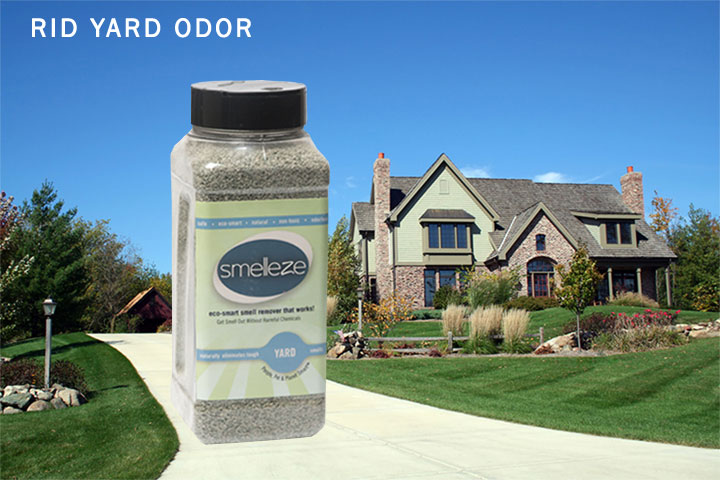If you step out into your yard and are assaulted by a foul stench and soft even soggy spots when it hasn’t rained, you’re almost certainly dealing with a broken sewer line.
What to Do with a Broken Sewer Line
The first thing to do is to find a reputable drainage repair technician. It’s one thing to handle an overflowing toilet on your own, but it’s a completely different beast trying to fix a broken sewer line. A seasoned professional can come in and quickly determine the extent of the damage by snaking a camera through the pipes. More importantly, a seasoned professional can identify major problems facing you; for instance, repairs become significantly tougher when sewer pipes run too close to gas lines.
So, start with the Better Business Bureau. They can tell you about licensed professionals in your area, as well as whether or not they’ve received complaints in the past.
Try asking friends and searching internet reviews. If any of these line up, bring them out to investigate your situation and offer an estimate. It’s worth it on a huge job like this to get multiple opinions.
Ask the company for local references, to make sure that actual live customers have been satisfied. Again, this is a huge job, and you don’t want to take any risks.
What’s Going on with My Broken Sewer Pipe?
One of the most common culprits is a root system. Once tree roots wrap themselves around a pipe, it’s nearly impossible to repair an individual section of pipe, and your best bet will be to replace the whole line. Depending on how close the tree is to the pipes, it may be necessary to uproot the entire tree to prevent further complications. (That’s going to increase the cost, of course.)
Another common culprit is grease and gunk that people wash down their pipes every day. The pipes get clogged, the pressure builds, and soon you’ve got a nasty sinkhole in your yard.
Many homes that were built before the ‘80s were equipped with clay pipes, and once a clay pipe breaks in one spot, you can expect the rest to break in short order. They may last 50-60 years, but you’re coming up on that limit quickly.
If you’re unlucky enough to have a gas pipe running alongside your sewer pipe, you can expect to pay a premium for repairs. No one wants to explode.
If the city’s sewer connection pipe doesn’t reach your home, such that you have to tear up the street, again, you can expect to pay significantly higher costs.
Preventing Sewer Line Breaks
There’s not a whole lot you can do to prevent a sewer line break that comes from aging pipes. They only last so long; however, there are plenty of things you can do to otherwise prevent a sewer line break.
From the get-go, learn where your sewer line runs. Once you know, you can avoid planting trees near the pipe. You can also make sure to park away from the line since the added weight may weaken the pipe’s structure.
If you’ve already got a tree growing in the yard, and you’d hate to chop it down, consider adding a copper sulfate flush to your home maintenance routine. Twice-yearly (in the spring and fall), pour 2 pounds of copper sulfate into your toilet bowl—half a cup at a time. Flush after each half-cup goes down, but leave the last half-cup sitting overnight. Copper sulfate has been known to repel roots and can be purchased at any home improvement store. If the tree is close enough to the pipes, this is a temporary solution, but it can give you enough time to prepare for more extensive repairs.
Don’t flush anything down the toilet other than human waste, toilet paper, toilet cleanser, or copper sulfate. Ever. No cigarettes. Not even dental floss. And don’t pour grease down your drains (put grease in a can and throw it away that way).
Combating the Foul Stench of a Sewer Line Break
It’s all fine and good to know that the professionals can take care of the sewer pipes, but in the meantime you’re forced to deal with a near-overwhelming sewer stench. The professionals work will help out, but there are a couple things you can do to combat the sewer smell.
Spread SMELLEZE® Yard Smell Removal Granules around the offending areas. This product is eco-friendly and natural deodorizer and it’s ability to combat stinks of all varieties is well-known, and it doesn’t disappoint here. Fortunately, it also does not have any sodium content so it will not harm your grass and is a great option.
Another option, particularly once the waste water has had a chance to evaporate, is to spread sweet lime around the area. You can purchase it at any home improvement store. If the weather has been cooler, more of the water will be absorbed by the ground than will evaporate. If that happens, you may end up with a serious moldy, musty scent in the air, even after you clear the sewer stink. If that happens, you can buy MOISTURESORB® Moisture & Odor Elimination Granules. This will help dry out the soil quickly and take care of the musty odors.
And now you know how to deal with a broken sewer pipe. Did I miss anything? Or do you have any stench remedies of your own?
Author Bio:
Chris Miller is a professional writer, blogger, and English grammar enthusiast. Chris enjoys learning about new health products, procedures, and ideas.





Thank you For the solutions and the guide in your website its really helpful.
Good Article.
Really Help Me In to Understand How to Deal with a Broken Sewer Line.